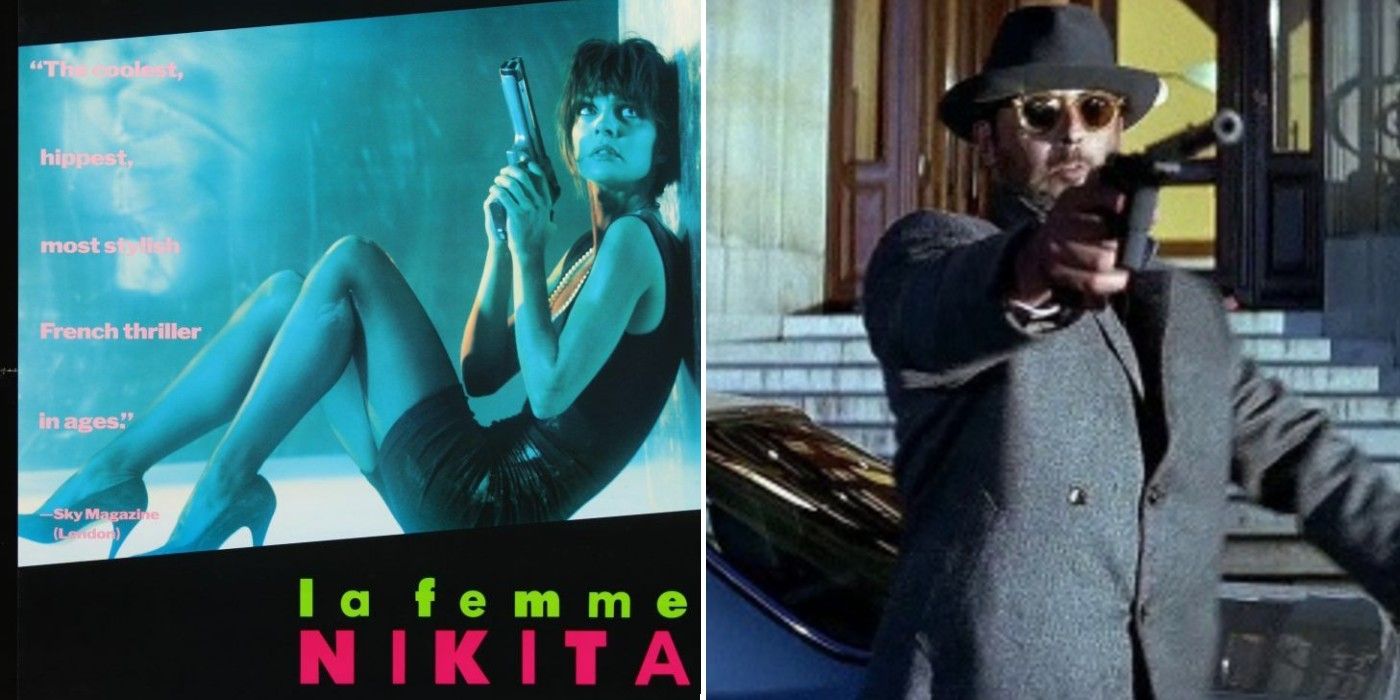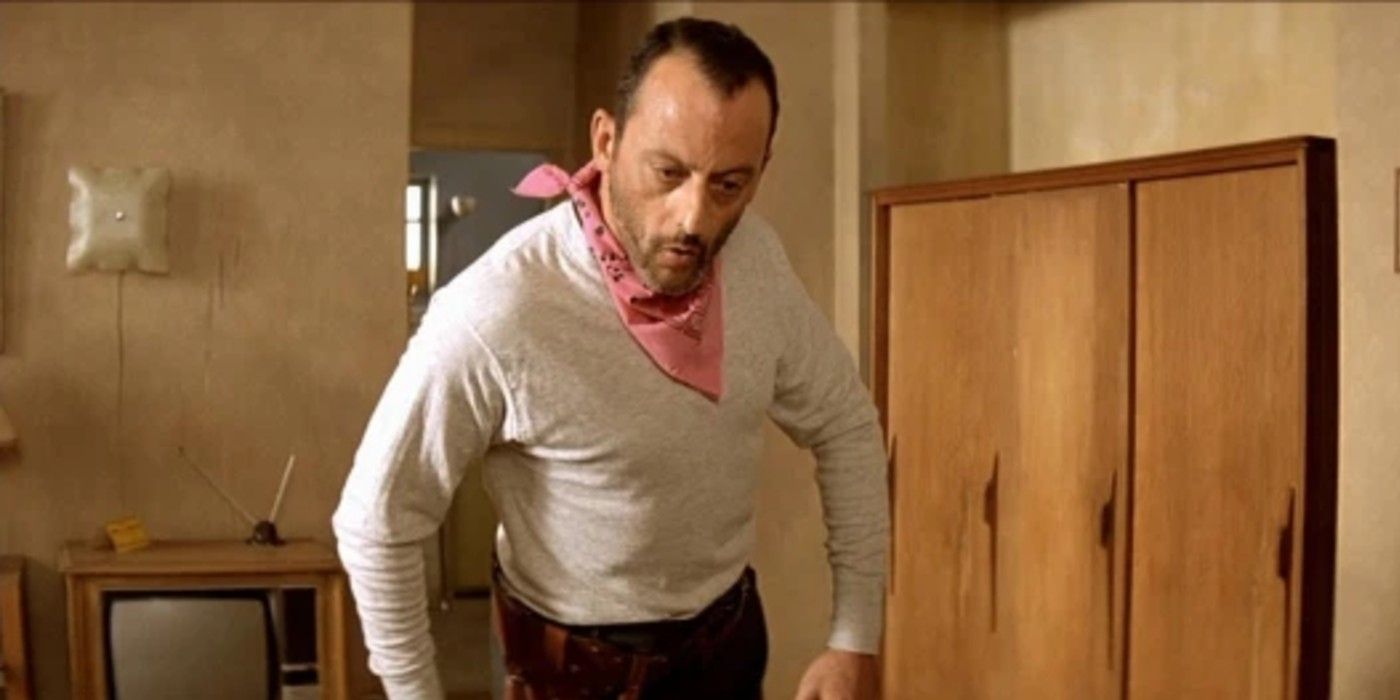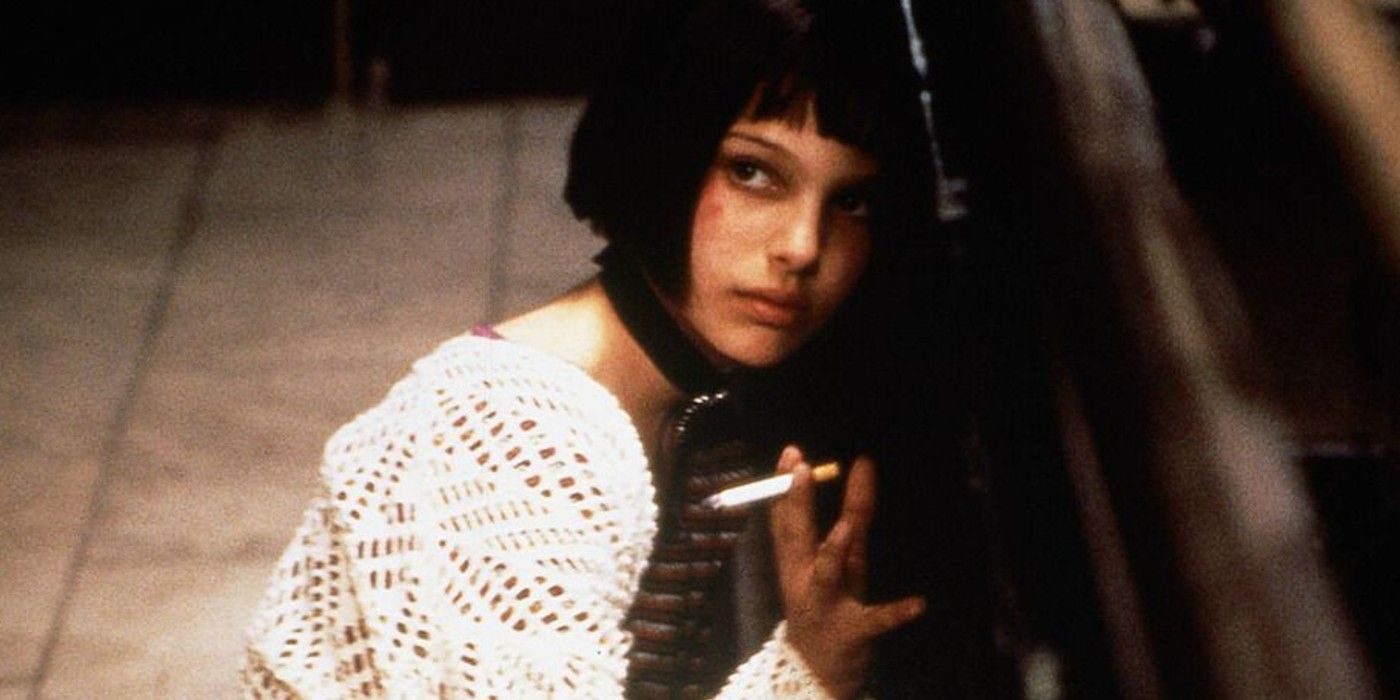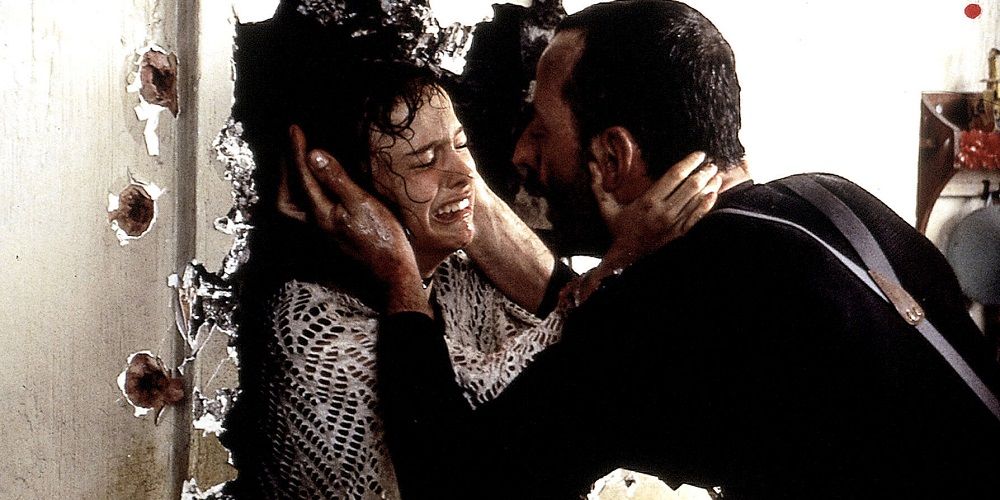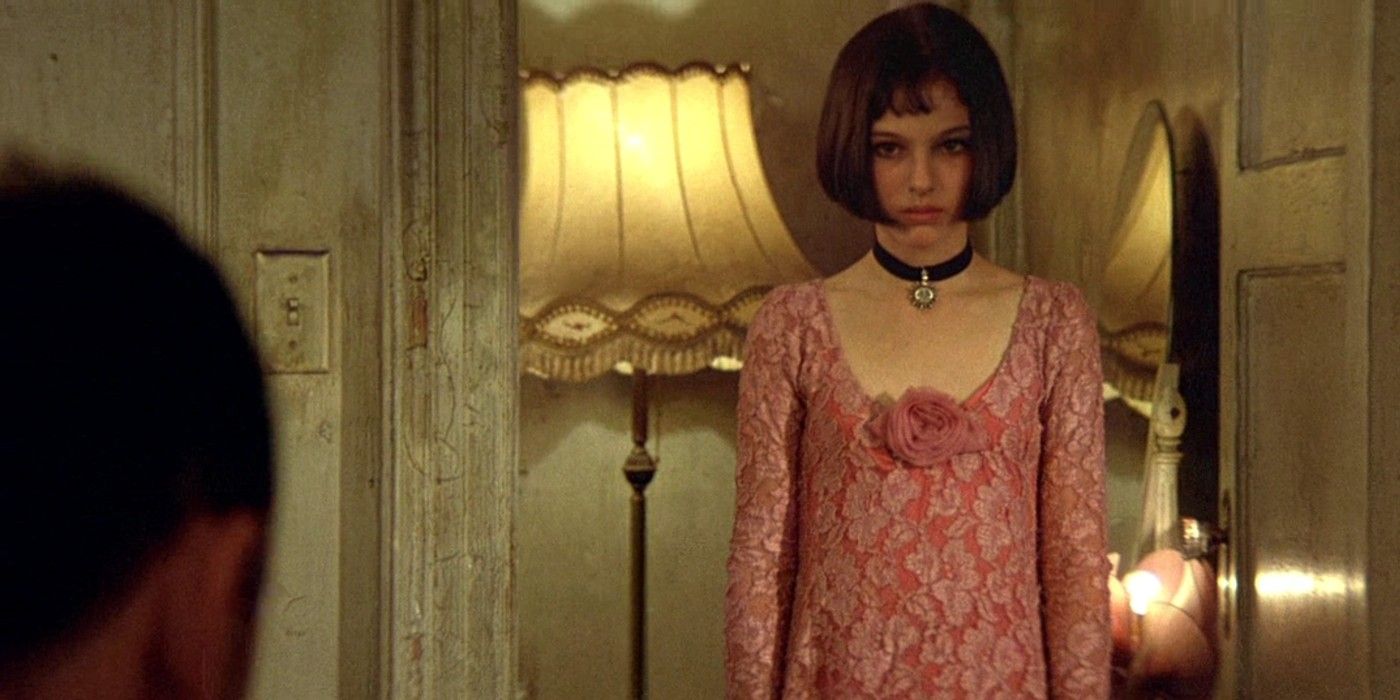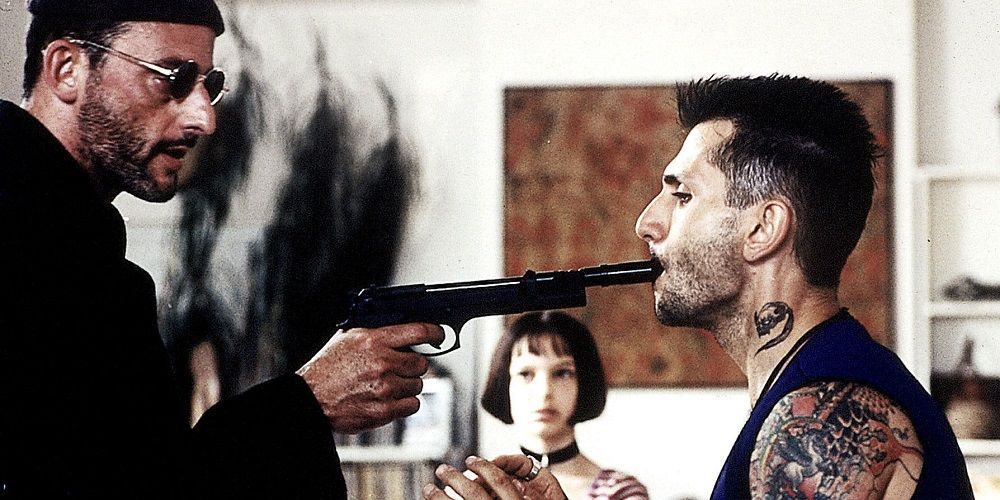Luc Besson's Leon: The Professional is one of the most popular dramatic crime movies of the last 25 years, enjoying a strong rating of 8.5/10 while sitting at #31 on IMDb's Top 250 Films. In addition, the film earned roughly three times its budget at the worldwide box-office, turning a $16 million price-tag into a $45 million global haul.
The controversial film concerns a loveable and childlike hitman named Leon (Jean Reno) who takes in a 12-year-old girl named Mathilda (Natalie Portman) following the brutal murder of her family at the hands of ruthless thug Norman Stansfield (Gary Oldman). In a look back at the production, here are 10 behind the scenes stories and facts about the making of Leon: The Professional.
Leon Was Inspired By La Femme Nikita
Besson got the notion to make Leon while in production on his previous film, La Femme Nikita. Besson felt the third-act character of Victor the Cleaner (also played by Jean Reno) was worthy of his own film. Both Leon and Victor sport long wool jackets, knit hats, and sunglasses. The working title for Leon at the time was The Cleaner.
According to producer Patrice Ledoux, Besson only decided to make Leon in his downtime while waiting for Bruce Willis to become available for The Fifth Element, which was already in production. Besson penned wrote the entire screenplay for Leon in 30 days and spent 90 days filming before making The Fifth Element three years later.
Natalie Portman Was Originally Turned Down
Leon marks the screen debut of Natalie Portman, who was 11 years old when she was cast as Mathilda. Portman beat out roughly 2,000 young girls to win the part. Among other high-profile names considered for the role included Liv Tyler and Christina Ricci.
Portman was initially rejected by casting director Todd Thaler for being too young. When she re-auditioned and played the scene in which Mathilda pines over her murdered brother, Besson was so struck by the emotional depths she went to that he hired her on the spot.
Jean Reno Portrayed Leon As A Manchild
According to Luc Besson, Leon was always intended for Jean Reno. However, Mel Gibson, Robert De Niro, and Keanu Reeves were all attached to the role at various stages of pre-production.
For his preparation as the titular hitman (aka cleaner), Reno deliberately played Leon as slightly mentally impaired or emotionally stunted man, as if he were a young child stuck in the body of an adult. Reno felt this was necessary for the audience to remain on his side and believe he could never pose a physical or sexual threat to Mathilda. For scenes that called on such taboo subject matter, Reno allowed Portman to control the emotional tone.
Natalie Portman Had A Smoking Stipulation
For obvious reasons, Natalie Portman's parents had several concerns about the adult nature of Mathilda. As such, they signed a contract with producers to specify the exact amount and way in which Mathilda could be depicted smoking cigarettes onscreen.
In the contract, a total of five smoking scenes were agreed upon. In the scenes, Portman was barred from inhaling or exhaling smoke onscreen, and the character of Mathilda had to quit smoking over the course of the film. All of these stipulations were agreed upon and adhered to in the final cut of the film.
Besson Used Mint Oil To Make Portman Cry On Cue
Thanks to a rather cruel method by Besson, Portman learned how to cry on cue while filming Leon. During the emotional scene in which Mathilda discovers the massacre of her family, Portman struggled to conjure the requisite tears. In response, Besson had a crew-member apply mint oil into Portman's eyes to induce the tears necessary for the scene.
The sensation was so painful that for every subsequent crying scene in the film, Portman had zero issue crying real tears on cue. All she had to do was think about the mint oil and she would cry on command.
Gary Oldman Improvised Most Of His Lines
In this movie, Gary Oldman gives one of his most iconic performances as the pill-popping psycho crooked cop Stansfield. Many of his most memorable lines and scenes were actually improvised by Oldman on the spot.
In a 2014 interview with Playboy, Oldman confessed that his famously loud line "Bring me everyone!" was done as a joke to make Besson chuckle. In previous takes, he recited the line at a normal volume. Oldman then told the soundman to take off his headphones so he could shout the line as loud as possible, which was the take ultimately used in the final cut. Oldman also ad-libbed the speech about his love of Beethoven and the scene where he sniffs Mathilda's Father.
There Were No Rehearsals For The Dress Scene
To elicit the most genuine reactions possible, Reno and Portman were barred from rehearsing the most controversially intimate scene in the film.
The scene entails Mathilda trying on the dress given to her by Leon earlier in the film. Reno continued to ask Besson when the two actors would read the part together, but Besson constantly ignored the question. When it came time to film the scene, both the actors exuded a natural awkwardness and strange sexual chemistry that could not have been replicated if the scene was rehearsed.
There's A Deleted "Love" Scene
In the original cut of the film, Mathilda asks Leon to be his lover and he agrees. However, this scene scored so badly among test screenings, often drawing audible laughter from the audience who felt the tone was inappropriate, that Besson cut it scene before the theatrical release.
Despite the excision, Portman claimed in a 2018 speech made at the Women's March in Los Angels that she felt she'd been sexualized in the way her character was portrayed in the film.
A Real Criminal Mistook The Movie's Cops For The Real Thing
While filming an exterior scene in which several police cars line a New York city block, a real-life criminal who had just robbed a nearby store was tricked by the production team when he accidentally ran onto the movie set during his escape attempt.
As the man fled his crime scene and inadvertently stumbled onto the set of Leon, he saw all of the fake police cars and immediately turned himself in. Little did he know he turned himself into a group of extras posing as uniformed police officers.
The Original Ending Was Darker
The original ending of Leon was conceived to be far darker than what transpires in the released version. Rather than planting Leon's favorite shrub outside the orphanage to honor his memory and start a new life, Mathilda goes murderously insane.
When Stansfield shoots Leon dead, the original ending called for Mathilda to open her jacket and reveal a series of live grenades planted on her person. She would then perform the "ring-trick" Leon taught her earlier and detonate the building. Ultimately, this was deemed too dark and inconsistent with Mathilda's nature that Besson changed the ending.


